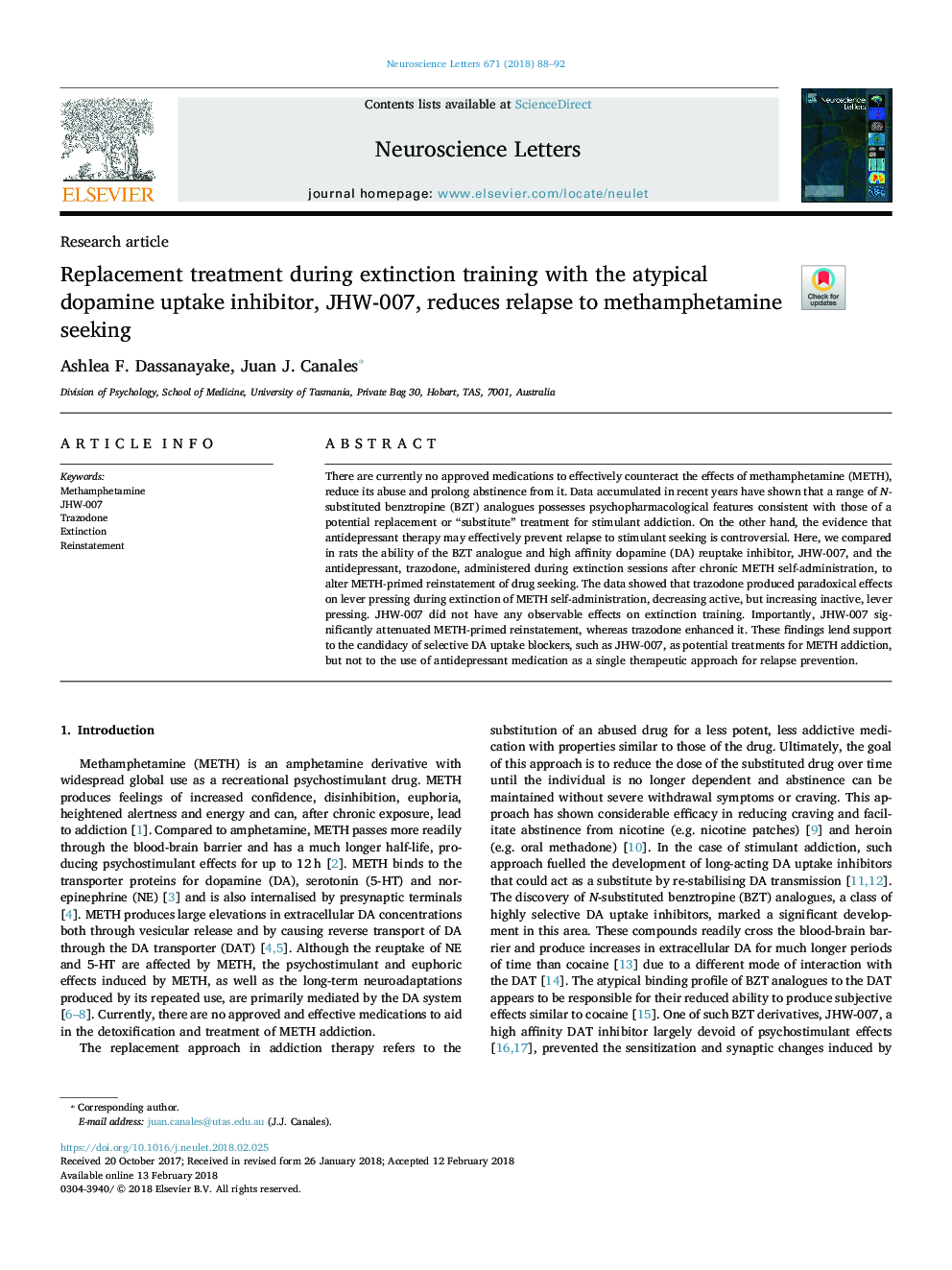| Article ID | Journal | Published Year | Pages | File Type |
|---|---|---|---|---|
| 8841664 | Neuroscience Letters | 2018 | 5 Pages |
Abstract
There are currently no approved medications to effectively counteract the effects of methamphetamine (METH), reduce its abuse and prolong abstinence from it. Data accumulated in recent years have shown that a range of N-substituted benztropine (BZT) analogues possesses psychopharmacological features consistent with those of a potential replacement or “substitute” treatment for stimulant addiction. On the other hand, the evidence that antidepressant therapy may effectively prevent relapse to stimulant seeking is controversial. Here, we compared in rats the ability of the BZT analogue and high affinity dopamine (DA) reuptake inhibitor, JHW-007, and the antidepressant, trazodone, administered during extinction sessions after chronic METH self-administration, to alter METH-primed reinstatement of drug seeking. The data showed that trazodone produced paradoxical effects on lever pressing during extinction of METH self-administration, decreasing active, but increasing inactive, lever pressing. JHW-007 did not have any observable effects on extinction training. Importantly, JHW-007 significantly attenuated METH-primed reinstatement, whereas trazodone enhanced it. These findings lend support to the candidacy of selective DA uptake blockers, such as JHW-007, as potential treatments for METH addiction, but not to the use of antidepressant medication as a single therapeutic approach for relapse prevention.
Related Topics
Life Sciences
Neuroscience
Neuroscience (General)
Authors
Ashlea F. Dassanayake, Juan J. Canales,
